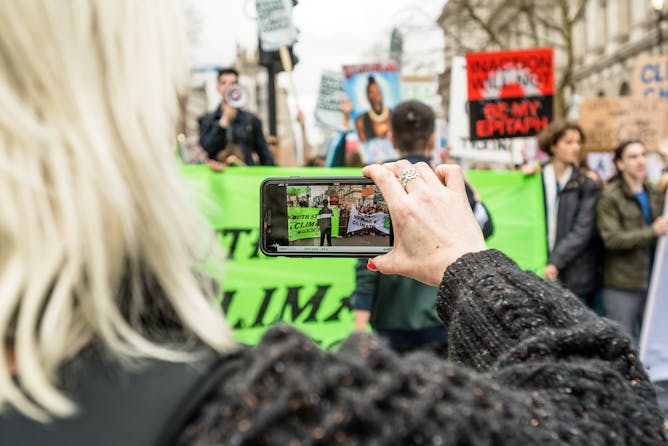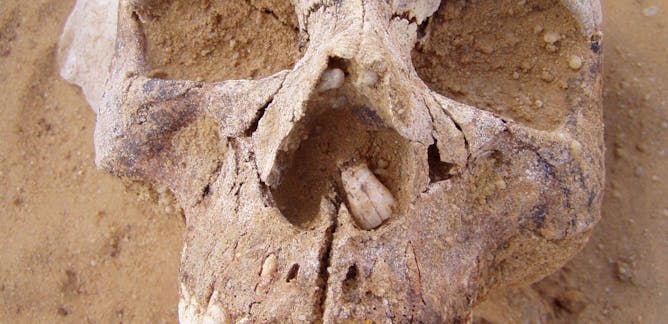|
Over half the videos on YouTube relating to climate change deny it’s caused by humans, according to a new study. Santosh Vijaykumar argues that this is not the only way scientific misinformation is gaining the edge over facts on social media, and that scientists need to fight back. Elsewhere Kate Tilleczek considers social media and digital technology through a different lens: how young people in
different countries feel about them. The answers may surprise you.
|

One photo/Shutterstock
Santosh Vijaykumar, Northumbria University, Newcastle
New evidence suggests most YouTube videos on climate change deny its existence.
|

Young people in a study discussed feeling left to their own devices to face the future.
(Shutterstock)
Kate C. Tilleczek, York University, Canada
Researchers examined how youth on three continents think about digital technology today and conducted an experiment to learn what youth said after living without their phones for a week.
|
Politics + Society
|

Anika Kozlowski, Ryerson University
Zara, a fast-fashion clothing company, recently pledged to produce its line using only sustainable textiles. But it is not enough to curb the company's significant impact on climate change.
| |

Amanda Tattersall, University of Sydney
Protesters have adopted new approaches stemming from the failures of the 2014 Umbrella Movement and they are building something that is showing resilience to Beijing’s authoritarianism.
|
|
|
Science + Technology
|

Joel D. Irish, Liverpool John Moores University; Czekaj- Zastawny Agnieszka, Polish Academy of Sciences; Jacek Kabacinski, Polish Academy of Sciences
Stone Age people in Egypt showed great respect for their dead, providing a glimpse of what was to come in the Dynastic period.
| |

Tim Collins, Manchester Metropolitan University; Sandra Woolley, Keele University
People with darker skin tones get less reliable readings from fitness trackers.
|
|
|
En français
|

Etienne Huyghe, Université Paris 1 Panthéon-Sorbonne
Le Mali fait face à une double interrogation : est-il possible d'initier un tel dialogue ? Si oui, est-ce souhaitable au vu des objectifs poursuivis par l'État malien et par les djihadistes ?
| |

Christian Abadioko Sambou, Université de Lille
Les problématiques sur la ZLEC ne se posent pas seulement en termes économiques et commerciaux. Elles comportent également des enjeux et des défis sécuritaires qui requièrent beaucoup de diligence.
|
|
|